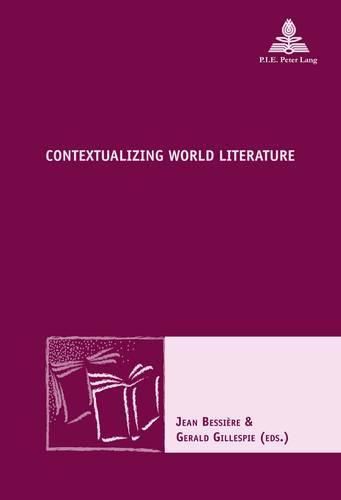Readings Newsletter
Become a Readings Member to make your shopping experience even easier.
Sign in or sign up for free!
You’re not far away from qualifying for FREE standard shipping within Australia
You’ve qualified for FREE standard shipping within Australia
The cart is loading…






This book revisits the notion of World Literature and its applications in Comparative Literature. It suggests the notion not as a means to sift out international paradigms for reading literatures, but as a set of guidelines for the construction of interlocking and/or reciprocally illuminating multilingual literary clusters. These ensembles are of very diverse shapes: the world, a region, a country, a language block, a network of cross-cultural interferences - while the so-called minor literatures invite to question the use of these ensembles. Within this frame, fourteen essays respond to the basic paradox of World Literature: how may specific methodological and critical outlooks allow expression of the universal? The answers to this question can be arranged in three groups: recognition of the need to break loose from European or Western critical perspectives; presentation of macro- and microcosmic dimensions connectedness and its processes; and, definitions of the methodological efforts and hermeneutic orientations to be applied.
$9.00 standard shipping within Australia
FREE standard shipping within Australia for orders over $100.00
Express & International shipping calculated at checkout
Stock availability can be subject to change without notice. We recommend calling the shop or contacting our online team to check availability of low stock items. Please see our Shopping Online page for more details.
This book revisits the notion of World Literature and its applications in Comparative Literature. It suggests the notion not as a means to sift out international paradigms for reading literatures, but as a set of guidelines for the construction of interlocking and/or reciprocally illuminating multilingual literary clusters. These ensembles are of very diverse shapes: the world, a region, a country, a language block, a network of cross-cultural interferences - while the so-called minor literatures invite to question the use of these ensembles. Within this frame, fourteen essays respond to the basic paradox of World Literature: how may specific methodological and critical outlooks allow expression of the universal? The answers to this question can be arranged in three groups: recognition of the need to break loose from European or Western critical perspectives; presentation of macro- and microcosmic dimensions connectedness and its processes; and, definitions of the methodological efforts and hermeneutic orientations to be applied.